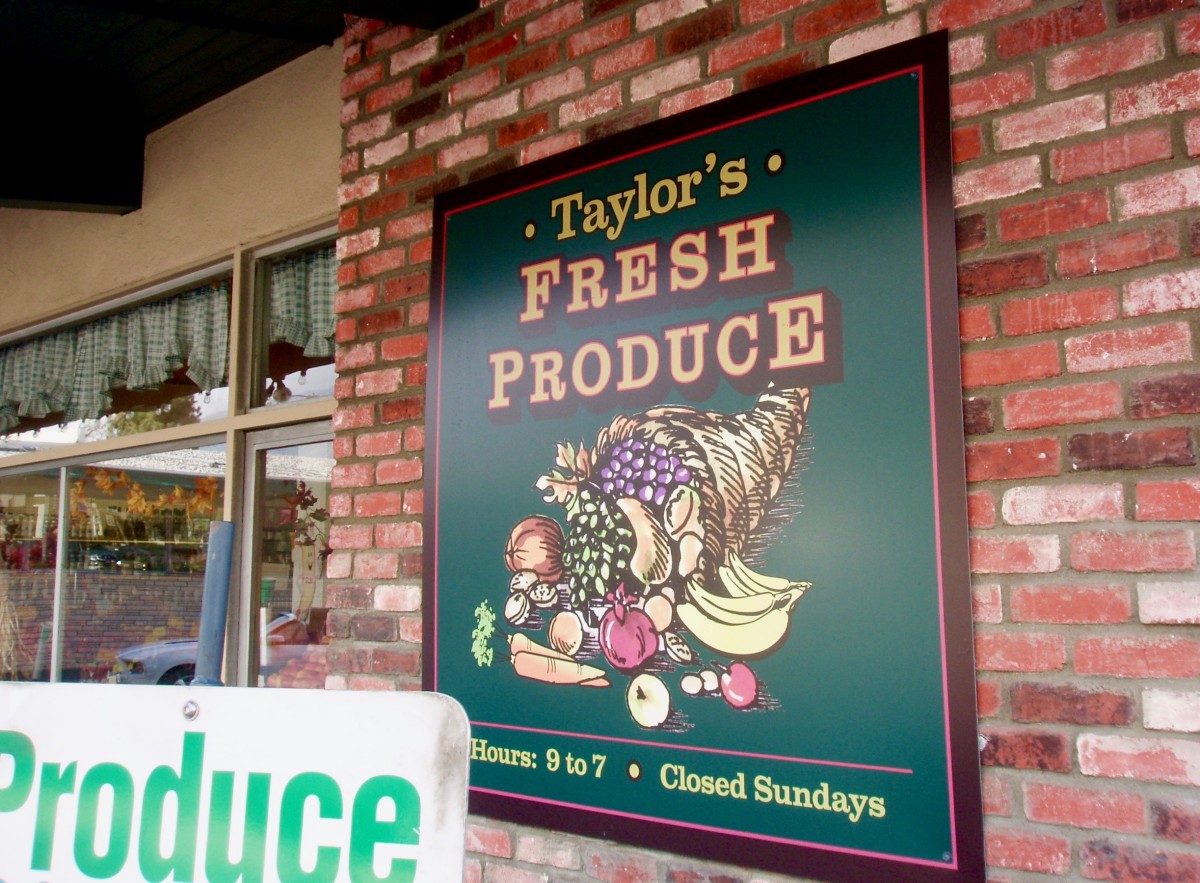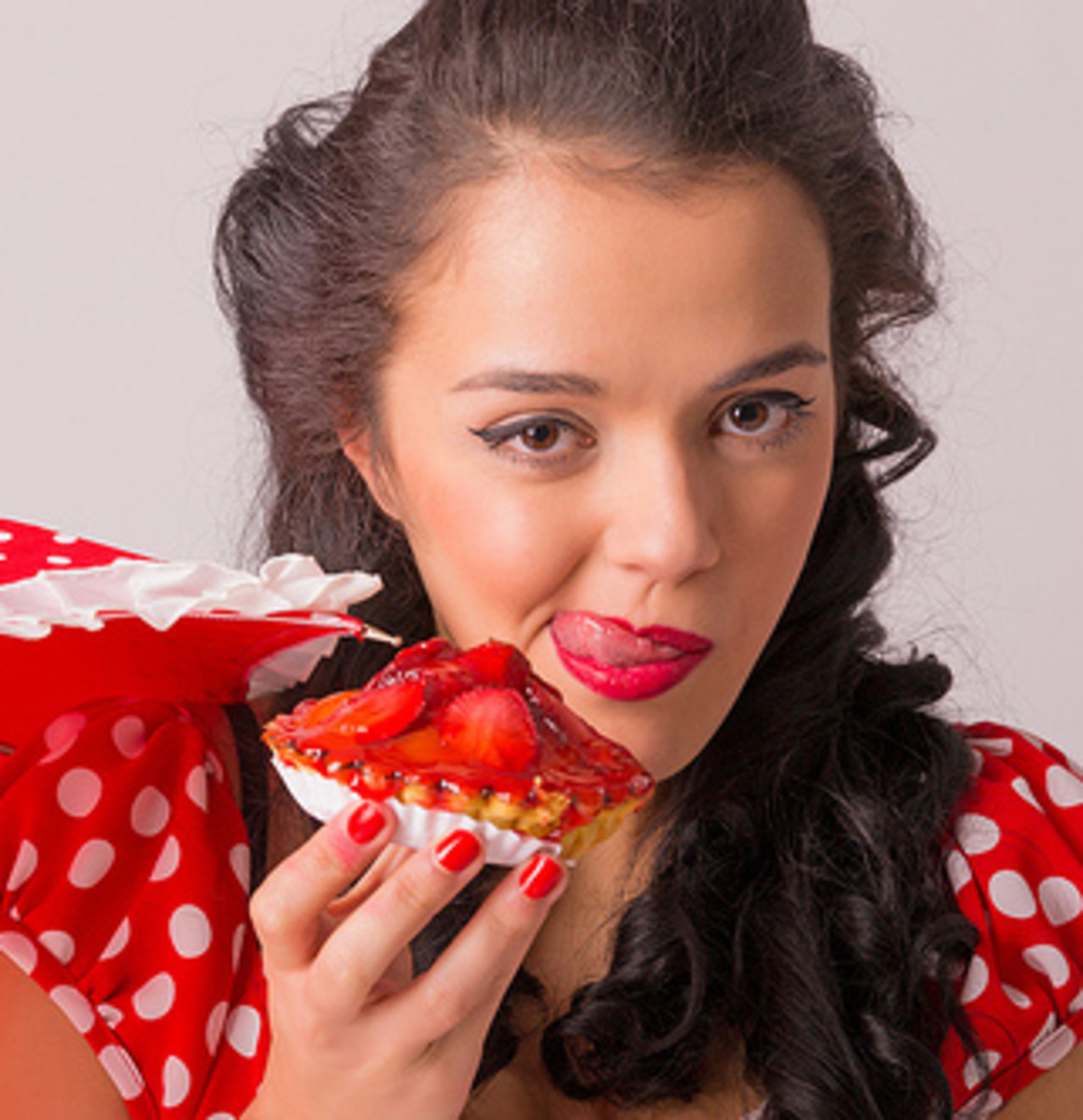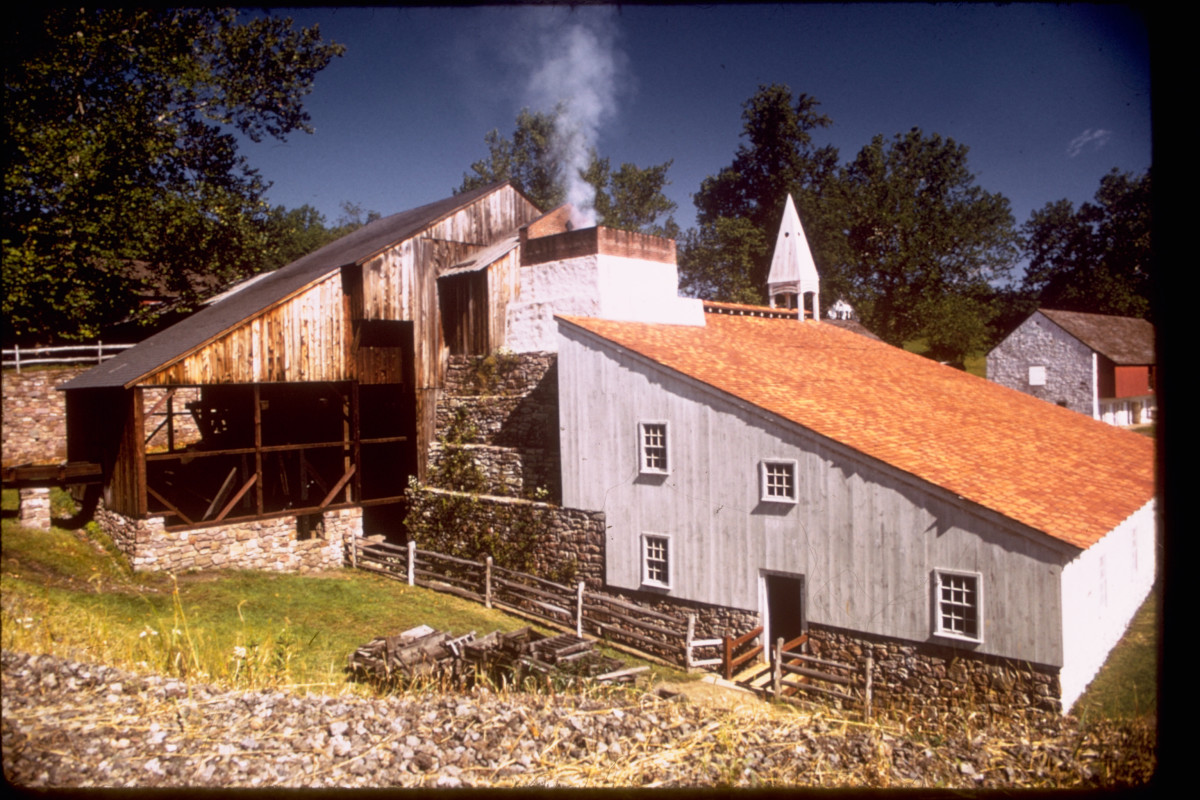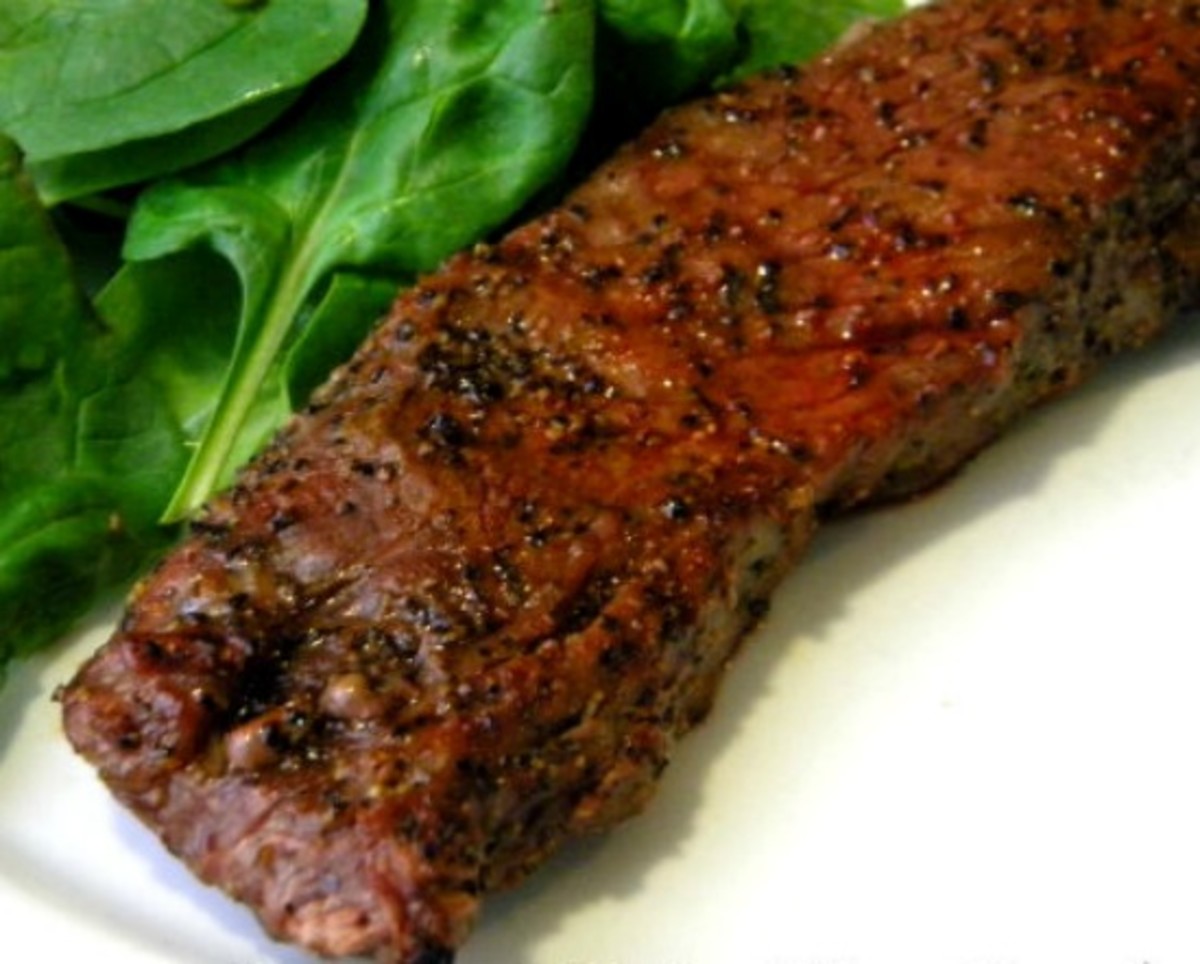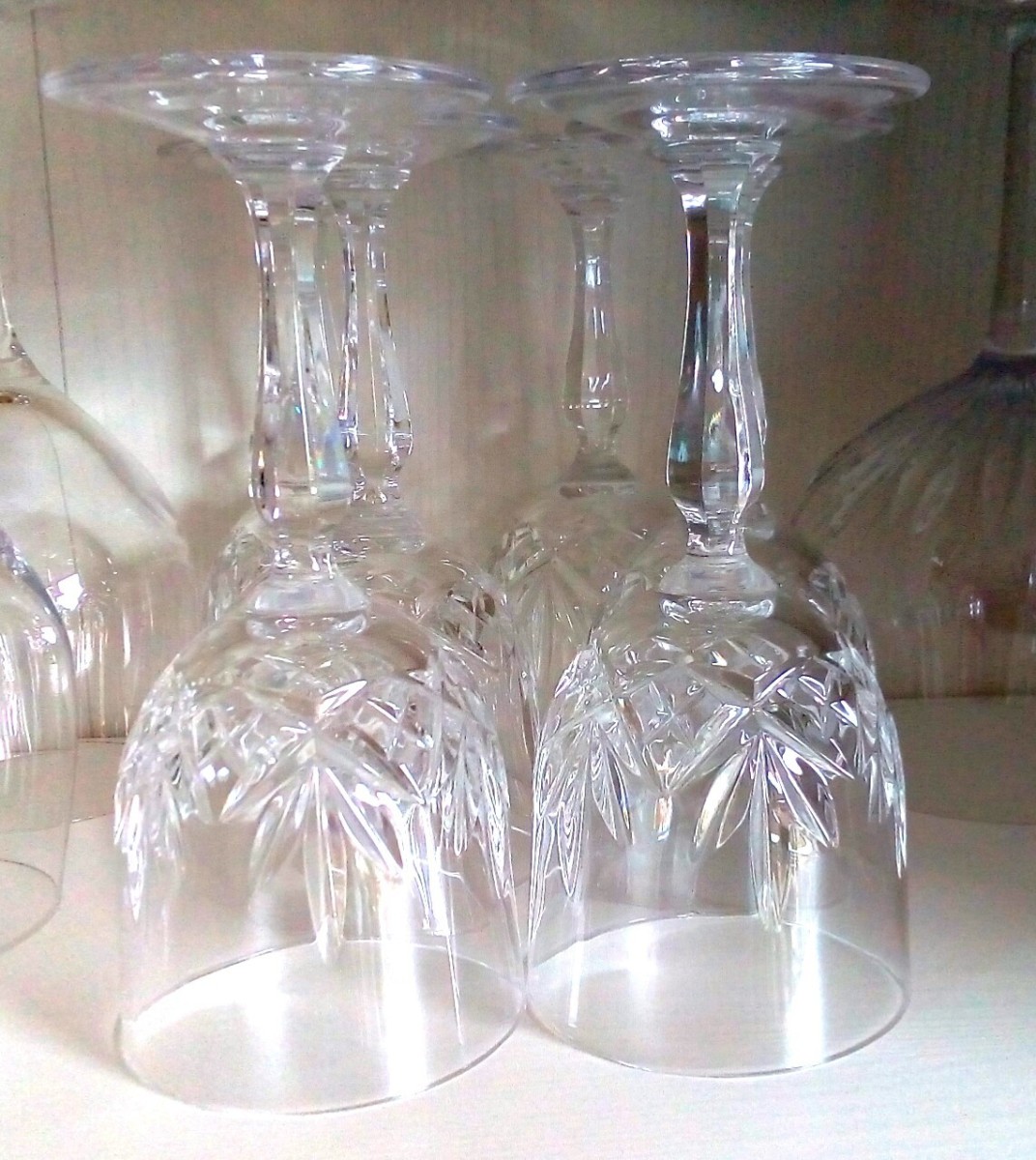What is Fair Trade and why should we care?
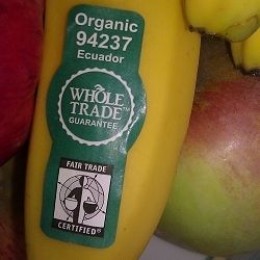
The Fair Trade symbol on a product means people and the planet are as important as profits to that company
Fair Trade is about buying food and products that were grown and manufactured without harming people or the environment that sustains us all.
Take the bananas in my fruit bowl. That sticker certifies they were grown on a plantation that pays its workers a fair wage for their labor and does not exploit them.
The Fair Trade stamp at the bottom of the sticker tells me the plantation is inspected regularly and the owners must show they do not expose their workers to dangerous pesticides or other chemicals that could make them ill, even kill them. It also tells me the plantation does not pour pollutants into streams, groundwater or air while growing and processing its fruit.
On this page, learn more about Fair Trade and what it means to you and me. You will also find links to excellent sites to help you in your journey to an ever more sustainable, just and conscious lifestyle. First up: Why it pays to pay a wee bit more for your bananas.
How familiar are you with the concept of Fair Trade?
Fair Trade is a new concept for many of us
Harriet Lamb's book is a good read and a good place to start learning why it's so important.
Full of first-person accounts that paint graphic pictures, Fighting the Banana Wars is a primer you can't put down and won't soon forget. In her forward, Lamb explains Fair Trade shopping this way:
"Which is perhaps why, for so many people in such very different circumstances right across the world, Fairtrade can become an addictive habit. You start by savouring a really good cup of Fairtrade coffee or some luscious chocolate; it's delicious and it's just basic common sense that farmers and workers should get paid a fair price for it. Why wouldn't you choose Fairtrade, all things being equal?"

Meet Bernadette, the Fair Trade banana, and Carlos, the conventional banana
Together, they'll take us to a banana plantation where we can see firsthand why we need more bananas like Bernadette.
Fair trade is about ...
Fair compensation for workers
Protecting our soil, air and water.
No child slaves laboring in horrible conditions so my family and I can eat and dress well.
Why does Fair Trade matter so much that I am willing to pay a premium for my bananas?
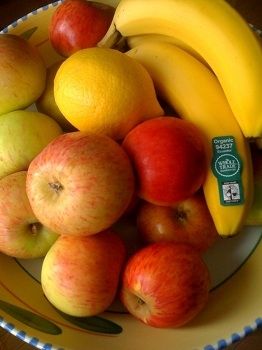
If the video above did not convince you, let me answer that question with a couple of questions.
Could you bite into one more banana, knowing there is a strong possibility the workers who grew, harvested and processed it were as young as eight years old, worked twelve hour days, and were exposed to deadly toxins with little or no protection?
Could you bite into it knowing that very likely, when workers got the cancers associated with those deadly toxins and were too ill to work, they lost their jobs, could no longer contribute support to their families, and received no medical care because they had no health insurance?
I can not. I'm willing to pay a little more for bananas that bear the Whole Trade Guarantee® or the Fair Trade Certified™ sticker because I know no human being was harmed just so I could have a ready supply of delectable fruit on the cheap.
The same goes for the tea, cocoa and coffee I drink, for the clothing I purchase, and for the toys I buy my grandchildren.
"Every purchase matters. With the Fair Trade Certified label, you get quality products that improve lives and protect the environment. The money you spend on day-to-day goods can improve an entire community's day-to-day lives."
Fair Trade USA
New to the idea of Fair Trade? Or is it old hat for you?
If you're new to the idea of Fair Trade, you're in good company. It's a concept that's been around a while, but not hit the mainstream consciousness--yet. But maybe you've been choosing Fair Trade products long before there was a certifying organization.
How can we tell a product was grown and manufactured fairly?
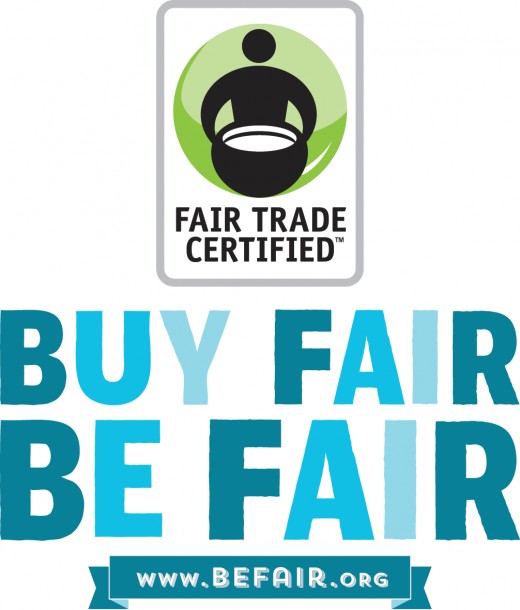
Look for the Fair Trade logo
Look at the label on your t-shirt, socks, sneakers, sheets. If they bear a Fair Trade Certified™ label, chances are they were manufactured with care for both the employees and the environment. That means no children worked in near slave conditions, and no toxins were dumped in nearby rivers or pumped into the groundwater after dark.
Products that strengthen us and our communities
With fair trade, what we get are beautiful products that allow us to give back to the communities and strengthen them. ... Non-fair-trade products are just about the products.
Manish Gupta, founder of Handmade Expressions, as quoted in
Fairwashing by Megy Karydes
New Age Retailer, July-August 2011
What it takes to get certified
Is Fair Trade certification foolproof? No, but manufacturers and producers must go through a rigorous and costly application process to assure they've met minimum standards.
Take a look at the story behind Maggie's Organics. Now I admit, this 17-minute video has some of the earmarks of a marketing department production and leaves a few unanswered questions. Nevertheless, it tells a remarkable story, and I'm betting you'll be glad you watched it all the way to the end.
The question is: What difference will we make?
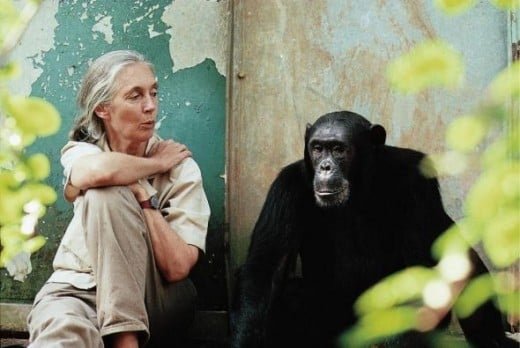
Listen to Jane Goodall on that
In A Conversation about Peace during Peace Week 2011, Dr. Goodall said,
There are thousands of people today who do really care about the problems of the planet, but they feel helpless. They don't know what to do. And you know you can say, okay, every day you make a difference, and they think to themselves, yes, but what difference, and I think the answer is, just spend a bit of time thinking about, and that may mean learning about as well, but thinking about the consequences of the choices you make each day. What do you buy? Food. Clothes. Where did it come from? Did it harm the environment? Was it child slave labor? Was it inflicting horrible cruelty on farm animals?
Ask these kind of questions. How far has it come, and did it waste air miles? Could you have bought it locally? As you interact with people, what sort of interaction are you going to have? If you find an animal that needs help, are you going to help it, or just leave it? Just these little things about your daily behavior, and it doesn't seem much, but it can lead to bigger and bigger change, and millions and millions of small changes that are ethical decisions can begin to create the kind of planet that we must create if we care about the future.
Recorded on September 17 during Peace Week 2011. You may have to register to access the recording linked above. Registration is free. Once you get to the linked page, scroll down to "Recorded on Saturday, September 17th 2011." An audio recording of Dr. Goodall's conversation is in that short list.
How difficult is it to find Fair Trade Certified products?
The answer is: Somewhat, but they're there if you look for them.
The more we ask our retailers and suppliers for Fair Trade Certified™ products, the more we get. In fact, on July 11, 2014, the web site Blue and Green Tomorrow quoted a new report that shows our demand for ethical products and foods is so great, we've established a profitable--and growing--market for them.
Today, according to Fair Trade US (FTUS), there are more than 10,000 certified products available worldwide, and more than 7,000 available in the United States. Not only that, but FTUS makes it easy to find Fair Trade Certified™ brands of the products you buy most frequently in these seventeen categories.
- Apparel & Linens
- Beans & Grains
- Body Care
- Cocoa
- Coffee
- Flowers & Plants
- Fruits & Vegetables
- Herbs & Spices
- Honey
- Multi-Ingredient Foods
- Nuts and Oils
- Seeds
- Spirits
- Sports balls
- Sugar
- Tea
- Wine
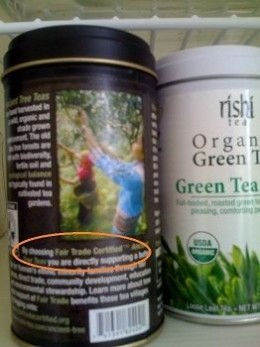
Did you catch those statistics above? Fair Trade is a global phenomenon
US consumers have access to about 7,000 Fair Trade Certified products, while worldwide, the number is 10,000. To find them all, try searching on this Fair Trade Federation page where you can search for member organizations by country and product type.
More resources
The following resources provide just about everything you might want to know about Fair Trade.
- Common myths and misconceptions about Fair Trade - Fair Trade Federation
- What is Fair Trade? - Green America
- Fair Trade products in the UK - Fair Trade UK
- Trace your coffee beans from farmer to producer - Fair Trade Proof
You can find organic and fair trade coffee in many supermarkets today
But if your local store doesn't carry it yet, do ask them to source some good shade-grown, Fair Trade, organic coffee beans for you. These are just two examples of some of the best gourmet, organic and Fair Trade Certified coffee on the market today.
Organic coffee from small Guatemalan farms
Order a bag today and taste the rich flavor, with just a hint of chocolate.
You'll need a grinder, if you don't have one. Whole beans are the way to go for the best coffee.
Worker-owned Equal Exchange, a for-profit company
Equal Exchange is a profit-making company that is owned by its workers and markets only Fair Trade products.
When you buy their products, you know that all the workers involved, US and overseas, are fairly compensated.
Fair trade practices are those which harm neither people nor the planet
How frequently do you buy Fair Trade products? Will you buy more going forward?
How important is to you to buy Fair Trade products?
Deavas Belgian Fair Trade Chocolates Gift Box - Available during the winter holidays
Who doesn't love fine Belgian chocolates, but during the holidays, so difficult to find! Sign up to be notified as soon as these extra special Fair Trade chocolates become available for holiday gifting..

What do you think of Fair Trade now?
© 2012 Kathryn Grace



